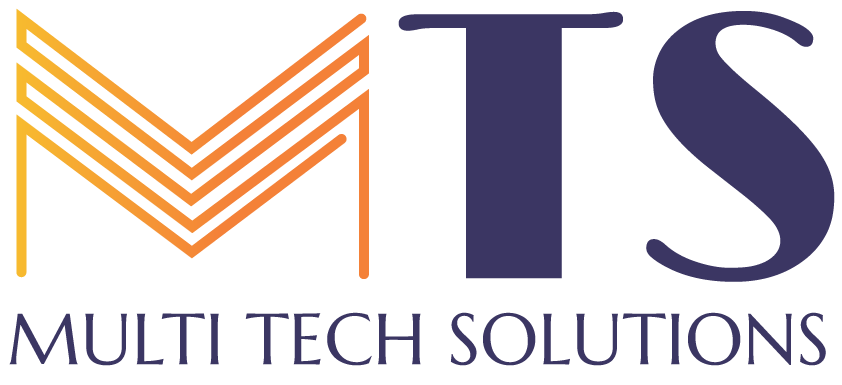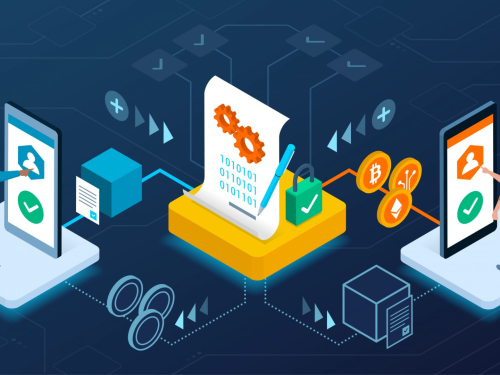
Blockchain technology has emerged as a game-changer in the world of business, offering a secure and decentralized platform for recording, verifying, and maintaining transactions. Its disruptive potential extends far beyond cryptocurrencies, with applications across various industries. In this article, we will delve into the revolutionary aspects of blockchain technology and its profound impact on business processes.
Section 1: Understanding Blockchain Technology
At its core, blockchain is a distributed ledger that records and stores data across a network of computers, known as nodes. Each transaction is stored in a block, which is then added to a chain of previous transactions, forming an immutable and transparent record. The decentralized nature of blockchain eliminates the need for intermediaries, such as banks or third-party payment processors, enabling direct peer-to-peer transactions.
Section 2: Enhanced Security and Transparency
One of the key advantages of blockchain technology is its enhanced security and transparency. By utilizing cryptographic techniques, each transaction is securely encrypted and linked to the previous transaction, creating a chain of trust. This makes it extremely difficult for malicious actors to tamper with the data, ensuring the integrity of the information stored on the blockchain.
Furthermore, the blockchain’s transparent nature allows all participants in a network to have visibility into the transactions and data stored on the blockchain. This transparency fosters trust among stakeholders, as they can independently verify and audit the transactions, reducing the risk of fraud or manipulation.
Section 3: Streamlined Supply Chain Management
The supply chain is a complex network involving multiple stakeholders, including suppliers, manufacturers, distributors, and retailers. Blockchain technology has the potential to revolutionize supply chain management by providing a single, shared ledger that can track and trace products from their origin to the end consumer.
By recording each transaction and movement of goods on the blockchain, companies can gain real-time visibility into their supply chains. This transparency allows for improved inventory management, reduced counterfeit products, and increased efficiency in logistics and distribution. Additionally, blockchain enables the creation of smart contracts, which can automate and enforce contractual agreements between parties, streamlining the procurement and payment processes.
Section 4: Smart Contracts and Automation
Smart contracts are self-executing contracts with the terms of the agreement directly written into code on the blockchain. These contracts automatically execute predefined actions once the specified conditions are met. The automation provided by smart contracts eliminates the need for intermediaries, reduces manual errors, and ensures trust and transparency in business dealings.
For example, in the insurance industry, smart contracts can automate claims processing, verifying the validity of claims and triggering payments based on predefined criteria. This not only accelerates the claims settlement process but also reduces administrative costs and the potential for fraud.
Section 5: Improved Cross-Border Transactions
Traditional cross-border transactions are often slow, costly, and prone to errors. Blockchain technology has the potential to transform the way international transactions are conducted, offering faster, more secure, and cost-effective solutions.
With blockchain, cross-border payments can be executed directly between parties without the need for intermediaries or multiple currency conversions. The use of cryptocurrencies as a medium of exchange eliminates the reliance on traditional banking systems, reducing transaction fees and processing times. Additionally, blockchain’s transparency ensures that all parties have visibility into the transaction status, eliminating the need for lengthy reconciliation processes.
Section 6: Data Security and Privacy
Data security and privacy are critical concerns for businesses in the digital age. Blockchain technology provides robust solutions to safeguard sensitive data and protect user privacy.
By encrypting data and storing it across a decentralized network, blockchain ensures that data is resistant to unauthorized access or alteration. This heightened security is particularly valuable in industries such as healthcare and finance, where the protection of personal information and financial data is paramount.
Furthermore, blockchain enables users to have control over their data by providing them with the ability to grant permission access to specific parties. This empowers individuals to maintain ownership of their data while selectively sharing it with trusted entities, thereby preserving privacy and reducing the risk of data breaches.
Section 7: Enhanced Customer Trust and Loyalty
In an era where trust is a valuable currency, blockchain technology has the potential to enhance customer trust and loyalty. By providing a transparent and immutable record of transactions, companies can build credibility and establish trust with their customers.
For instance, in the food industry, blockchain can be used to track and verify the origin and quality of products, giving consumers confidence in the safety and authenticity of what they consume. Similarly, blockchain-based loyalty programs can provide customers with a transparent view of their rewards and points, fostering trust and encouraging continued engagement with the brand.
Section 8: Cost Savings and Efficiency
Implementing blockchain technology can lead to significant cost savings and operational efficiencies for businesses. By eliminating intermediaries, streamlining processes, and reducing the risk of errors and fraud, companies can realize cost reductions in various areas of their operations.
For example, in the real estate industry, blockchain can simplify property transactions by automating the transfer of ownership and reducing the need for extensive paperwork and manual verification. This not only saves time but also minimizes costs associated with legal fees and administrative overhead.
Section 9: Challenges and Future Outlook
While blockchain technology holds immense potential, some challenges need to be addressed for widespread adoption. Scalability, energy consumption, regulatory frameworks, and interoperability are among the key hurdles that need to be overcome.
Looking ahead, the future of blockchain technology is promising. As scalability solutions, such as sharding and layer-two protocols, continue to be developed, blockchain networks will handle larger transaction volumes, making them more suitable for enterprise-level applications. Additionally, collaborations between industry stakeholders and the development of global standards will contribute to the interoperability and integration of blockchain into existing business processes.
Hence, Blockchain technology is revolutionizing business processes across industries. From enhanced security and transparency to streamlined operations and cost savings, the potential of blockchain is immense. Embracing this transformative technology can help businesses stay competitive, build customer trust, and unlock new growth opportunities.




